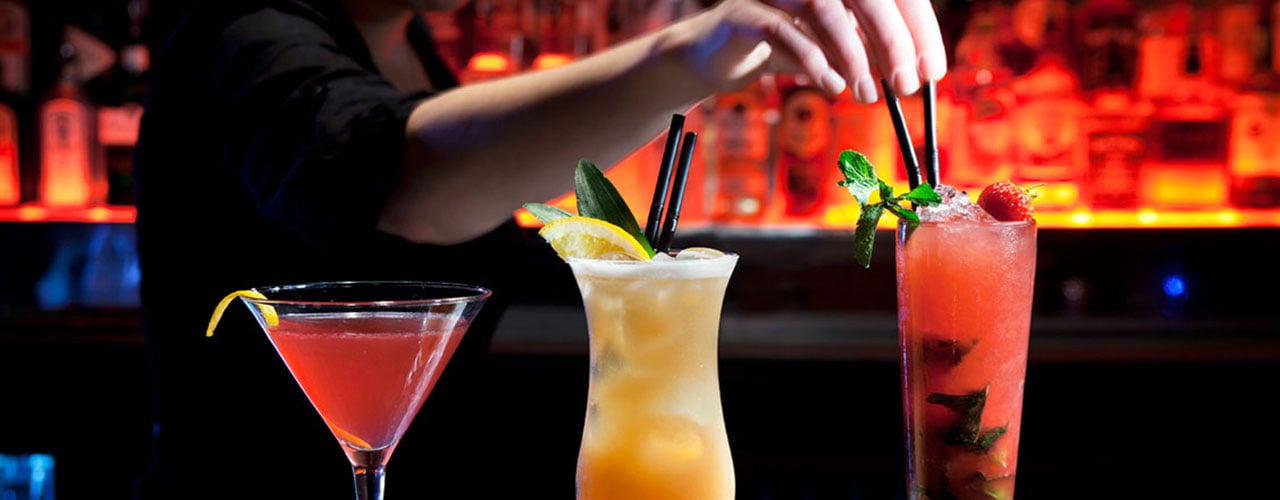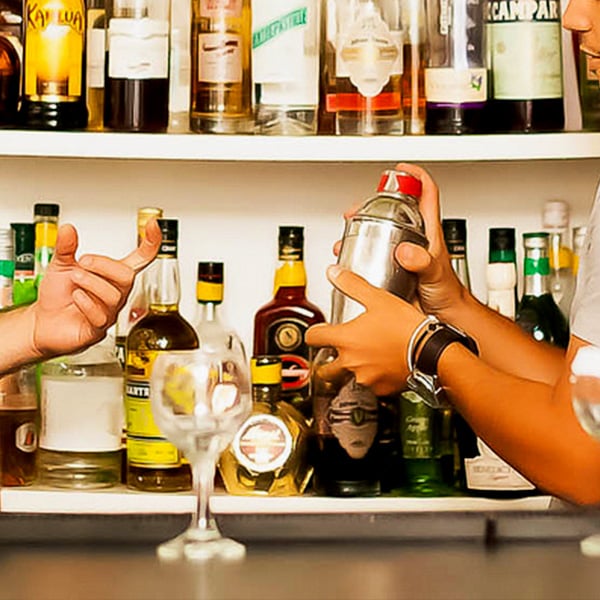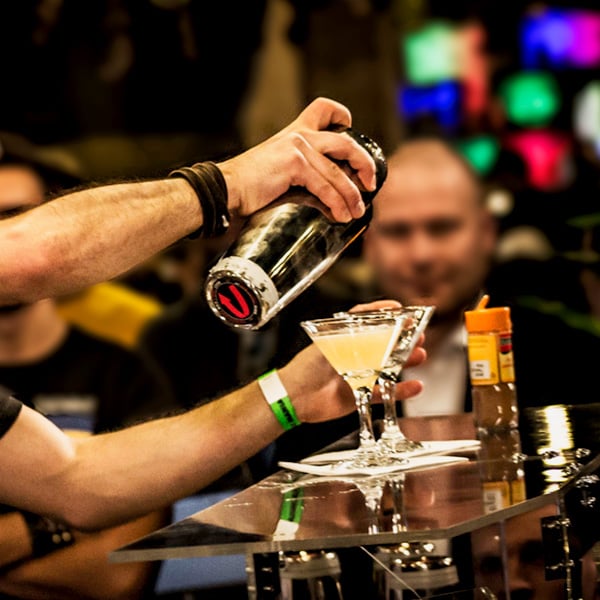
For any bar owner, the difference between success and failure often depends on the skill of their bartenders. Having well-trained, professional bartenders on your staff is essential for any kind of establishment from your local dive bar to an upscale lounge. But when it comes to experienced professionals, what’s the best way to become a great bartender? Read on to learn the pros and cons of bartending school versus bartending experience.
Bartending School

Generally speaking, most bar managers won’t hire a bartender straight out of school. But, having a certificate from a reputable institution shows that you’re serious about this career, and it can prove that you have a basic understanding of mixology.
You will most likely still be starting out as a busser or barback, but the education you’ve received could help you move up the ladder quicker than if you came into the position with no background knowledge. Below are some important pros and cons to consider when deciding if bartending school is right for you.
Pros of Attending Bartending School
Some bartenders and bar owners look down upon bartending schools. However, there are benefits to hiring a new bartender who has not yet developed bad bar habits, including overpouring, failing to upsell, and fixating on tips.
There are several other advantages bartending school offers:
- Provides guidance for someone who doesn’t know where to begin
- Gives students hands-on practice in a no-pressure environment
- Builds confidence for those new to the restaurant industry
- Offers resume help or interview practice
- Creates networking opportunities
- Often offers job placement programs for successful graduates
Cons of Attending Bartending School
The main risk with attending bartending school is having a potential employer look down on you and your certificate. Below are a few cons to consider before attending bartending school:
- Employers could see you as someone who isn’t willing to start at the bottom and work your way up
- You’re not guaranteed a job at the end of the course (even if a school claims so)
- Unless you keep practicing or land a job right away, any recipes or techniques you learned can quickly be forgotten
- It can be a large upfront expense
How Much Does Bartending School Cost?
Bartending school can cost anywhere from $200 to $600 for an in-person 40-hour course. Online courses often cost less, but they won’t provide you with the hands-on learning that’s needed to build your dexterity and gain experience. For comparison, bartenders will average anywhere from $100 to $200 a night in tips with an average wage of $10 an hour.
Bartending Experience

In most states, there is no certificate or schooling required to become a bartender. And if you survey the bartenders at your local watering hole, chances are most haven’t attended bartending school. That’s because many bartenders find that experience behind the bar is the most effective way to learn.
Lee Bonds is a bartender at Art and Soul Restaurant in Washington D.C. Bonds, who has a culinary background and no bartender license, said, "It isn't necessary to go to bartending school or classes to become a bartender at an upscale restaurant or in the industry in general." He added, "Most bartenders start off working in a restaurant and work their way up to bartender learning the tricks of the trade along the way."
Pros of Bartending Experience
Working from the ground up to gain expertise through work experiences has several advantages:
- You are essentially paid to learn rather than spending money on tuition
- The knowledge gained is more tailored toward your specific place of business
- More time is spent working in the restaurant industry
- Connections and relationships are formed with management and staff
- Management often favors those who choose experience over schooling
Cons of Bartending Experience
While gaining experience by working your way up the ladder works for some, there are a few disadvantages to consider:
- It may take longer to become a bartender without the schooling
- Being thrown into the restaurant industry with no experience or expectations can be overwhelming
- You’re starting from scratch with no additional guidance on resumes, interviews, or job placement
How to Become a Bartender with No Experience
Rather than attending bartending school, most of today’s successful bartenders started out in other areas of the restaurant. They were hired as bussers, barbacks, or runners with the hopes of gaining industry knowledge and working their way to the top. It’s through experience they were able to learn the basics of customer service, how to create a safe and equitable environment, and get an understanding of the fast-paced style of the restaurant industry.
Here are a few tips to becoming a bartender with no experience:
- Memorize classic cocktails and shots such as Manhattans, martinis, and Long Island Iced Teas
- Learn common terminology like muddling, neat, on the rocks, and other bar lingo
- Begin as a barback so you can observe how the bartenders move and work
- Invest in tools at home to practice pouring, mixing, shaking, and stirring on your own time
Bartending is a very hands-on craft that can only be perfected through years of experience. Whether you choose to begin your journey with an educational course or decide to jump right behind the bar, it’ll take time, patience, and a commitment to the craft. A combination of bartender education and on-the-job experience and training are both crucial to becoming a great bartender. For those that have the skill and determination, it can be a rewarding and lucrative career.





